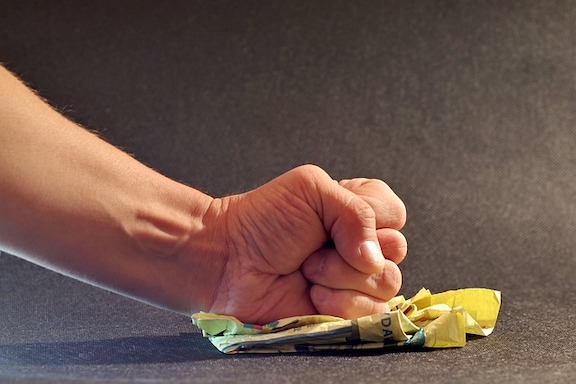Relationships: Why Do You Attack and Blame?
By Dr. Margaret PaulJanuary 12, 2009
Do you sometimes find yourself angry and blaming in your relationships and you have no idea why you are behaving this way?
 "A woman who I was dating and who I really liked ended our relationship and is dating someone else. I see her all the time at the market and I feel like yelling at her."
"A woman who I was dating and who I really liked ended our relationship and is dating someone else. I see her all the time at the market and I feel like yelling at her."
"I keep vowing not to, but I keep getting really angry at my husband when he is distant."
"I lost my temper with my assistant and now she is suing me. I just can't seem to help getting furious when people mess up."
If this is you, do you know why you continue to act this way, even when your angry behavior generally doesn't work and may end up creating more problems for you? Do you know what is going on for you when you attack and blame?
Below are some of the reasons you attack and blame. See if you identity with any of them...
- You believe that you can have control over others with anger or blame, and that controlling them will get you what you really want.
While sometimes you might be able to intimidate or guilt a person into doing what you want, you can NEVER have control over how a person thinks and feels. At some point, even if a person complies out of fear or guilt, it may backfire on you.
- You want to connect with someone, such as a partner, but you don't want to connect through true openness, as you are fearful of being seen and rejected. Connecting through a fight or argument seems like a safe way to connect. If the other person engages in the argument or fight, then you get some sense of connection, but if the other person disengages, then you may be left feeling even more lonely and helpless.
- You have low self-esteem. You are terrified of rejection and engulfment. You fear being alone. You feel insecure and powerless and getting angry and blaming makes you feel more powerful.
The problem is that true power comes from power within self, not power over others. While having control over another might feel good in the moment, since true self-worth comes from power within, controlling behavior over others never ultimately leads to feeling safe or secure. In fact, it leads to more fear and insecurity when others respond by distancing themselves from you, or resenting you, or resisting you, or rejecting you and leaving you.
- You are terrified of your more vulnerable feelings of helplessness over others, loneliness, aloneness, emptiness, fear, insecurity, or anxiety. Anger and blame work to cover up these feelings. You have no idea how to manage your pain so you have learned to get angry and blame to avoid these feelings.
The problem is that getting angry and blaming are forms of self-abandonment. While you might believe that it is others, situations, events, or the past that are creating your pain, it's that you are ignoring your feelings rather than taking responsibility for them that is actually causing your painful feelings. Until you learn how to take responsibility for your feelings, you might continue to cover them up with your anger and blame.
- You really believe that your pain is caused by others rather than by your own self-abandonment, so you feel justified in blaming others for your feelings.
As long as you believe that your painful feelings of anger, fear, hurt, anxiety, depression, guilt or shame are caused by something outside yourself, rather than from your own thoughts and actions, you will see yourself as a victim and have a need to try to control others. As long as you avoid responsibility for learning to your manage your feelings of loneliness, heartache, sorrow, grief, and helplessness over others, you will try to cover these feelings up with your addiction to anger and blame.
Learning to take compassionate responsibility for your own feelings is the key to moving beyond anger and blame. Learning and practicing the Inner Bonding process is a powerful way to learn how to love yourself and take responsibility for your feelings.
Join Dr. Margaret Paul for her 30-Day at-home Course: "Love Yourself: An Inner Bonding Experience to Heal Anxiety, Depression, Shame, Addictions and Relationships."
 Send this article to a friend
Send this article to a friend  Print this article
Print this article  Bookmarked 6 time(s)
Bookmarked 6 time(s)
| Related Articles |
|---|
| Why Do You Blame? |
| Verbal Abuse, Emotional Abuse - Overt and Covert |
| Conflict: Why Do You Argue, Why Do You Fight in Conflict? |
Comments
| Author | Comment | Date |
|---|---|---|
| Join the Inner Bonding Community to add your comment to articles and see the comments of others... | ||

Daily Inspiration
The loving Adult tells the truth. Focus on awareness of the untruths you may be telling yourself about yourself, and about having control over others and the outcome of things, and ask your Guidance for the truth.
By Dr. Margaret Paul

 Share with Del.icio.us
Share with Del.icio.us Share with Digg
Share with Digg







